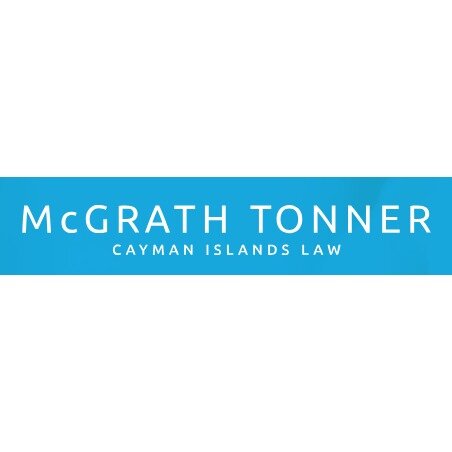Best Landlord & Tenant Lawyers in George Town
Share your needs with us, get contacted by law firms.
Free. Takes 2 min.
Free Guide to Hiring a Real Estate Lawyer
List of the best lawyers in George Town, Cayman Islands
About Landlord & Tenant Law in George Town, Cayman Islands:
Landlord & Tenant law in George Town, Cayman Islands governs the rights and responsibilities of landlords and tenants in rental agreements. It covers issues such as lease agreements, rent payments, repairs, eviction, and more. It is important for both landlords and tenants to understand their legal rights to ensure a fair and lawful tenancy.
Why You May Need a Lawyer:
You may need a lawyer in Landlord & Tenant matters if you are facing issues such as eviction, lease disputes, property damage, or if you need to negotiate or draft a rental agreement. A lawyer can help you understand your rights, navigate the legal process, and ensure that your interests are protected.
Local Laws Overview:
In George Town, Cayman Islands, the Landlord & Tenant Law is primarily governed by the Residential Tenancies Law (2018 Revision) and the Stamp Duty Law. These laws outline the rights and responsibilities of landlords and tenants, including provisions for rent increases, lease termination, maintenance obligations, and more. It is important to be aware of local laws to ensure compliance and avoid legal issues.
Frequently Asked Questions:
1. Can a landlord increase rent at any time?
No, a landlord must give the tenant at least 60 days' notice before increasing the rent. The increase must also be reasonable and in accordance with the terms of the lease agreement.
2. What are the grounds for eviction in George Town, Cayman Islands?
Grounds for eviction include non-payment of rent, breach of lease terms, or the landlord's desire to live in the property. The landlord must follow the legal process for eviction and cannot force a tenant out without a court order.
3. Who is responsible for maintenance and repairs in a rental property?
Typically, landlords are responsible for major repairs and maintenance, while tenants are responsible for minor maintenance tasks. However, this can vary depending on the terms of the lease agreement.
4. Can a landlord enter the rental property without permission?
A landlord must give the tenant reasonable notice before entering the rental property, except in case of emergency. The tenant's right to privacy must be respected by the landlord.
5. Can a tenant sublet the rental property?
Subletting is usually not allowed without the landlord's permission. The tenant must obtain written consent from the landlord before subletting the property.
6. What are the tenant's rights if the landlord fails to make repairs?
If the landlord fails to make necessary repairs, the tenant can file a complaint with the rental unit department and may be entitled to withhold rent or seek legal recourse.
7. Can a landlord terminate a lease early?
A landlord can terminate a lease early under certain circumstances, such as non-payment of rent or breach of lease terms. However, the landlord must follow the legal process for termination and provide proper notice to the tenant.
8. Are security deposits refundable?
Security deposits are typically refundable, minus any deductions for damages or unpaid rent. The landlord must provide an itemized list of deductions and return the remaining deposit within a specified time frame.
9. Can a tenant make changes to the rental property?
Tenants are generally not allowed to make significant changes to the rental property without the landlord's permission. Any alterations must be agreed upon in writing to avoid disputes.
10. What are the rights of tenants in the event of a dispute with the landlord?
If a dispute arises with the landlord, tenants can seek legal advice or assistance from the rental unit department. It is important to document the issue and communicate with the landlord in writing to resolve the dispute effectively.
Additional Resources:
For more information on Landlord & Tenant law in George Town, Cayman Islands, you can contact the Rental Unit Department or consult legal resources such as the Residential Tenancies Law (2018 Revision) and the Stamp Duty Law. You may also seek guidance from local legal professionals specializing in Landlord & Tenant matters.
Next Steps:
If you require legal assistance or have any specific questions concerning Landlord & Tenant law in George Town, Cayman Islands, it is advisable to consult with a qualified lawyer specializing in this area. They can provide personalized advice and guidance based on your individual circumstances to help you navigate the legal process effectively.
Lawzana helps you find the best lawyers and law firms in George Town through a curated and pre-screened list of qualified legal professionals. Our platform offers rankings and detailed profiles of attorneys and law firms, allowing you to compare based on practice areas, including Landlord & Tenant, experience, and client feedback.
Each profile includes a description of the firm's areas of practice, client reviews, team members and partners, year of establishment, spoken languages, office locations, contact information, social media presence, and any published articles or resources. Most firms on our platform speak English and are experienced in both local and international legal matters.
Get a quote from top-rated law firms in George Town, Cayman Islands — quickly, securely, and without unnecessary hassle.
Disclaimer:
The information provided on this page is for general informational purposes only and does not constitute legal advice. While we strive to ensure the accuracy and relevance of the content, legal information may change over time, and interpretations of the law can vary. You should always consult with a qualified legal professional for advice specific to your situation.
We disclaim all liability for actions taken or not taken based on the content of this page. If you believe any information is incorrect or outdated, please contact us, and we will review and update it where appropriate.

















